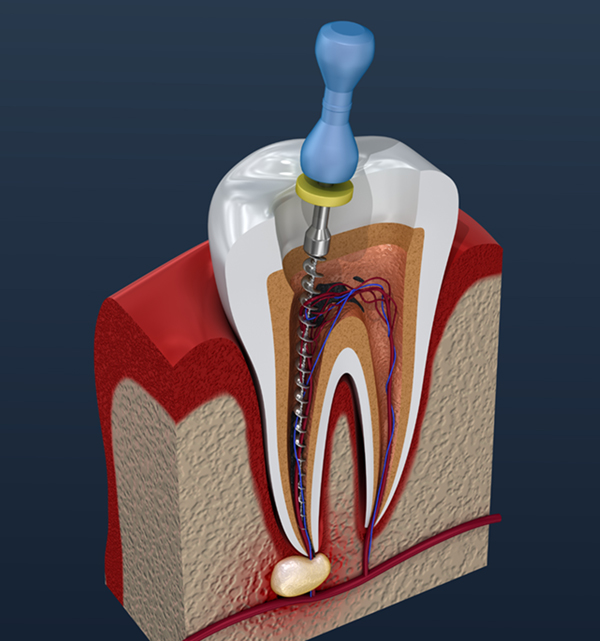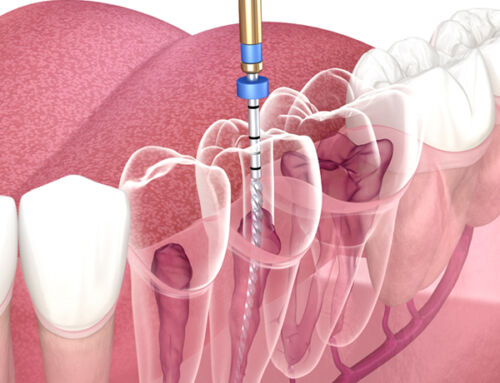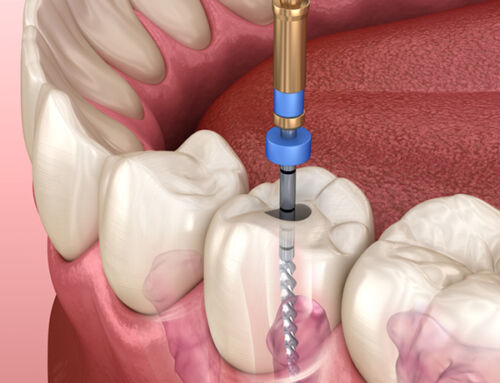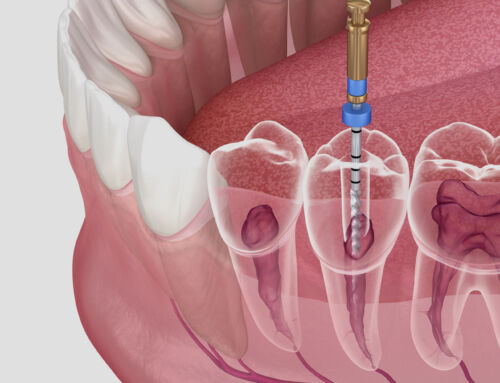A toothache can mean many things. It can be due to decay or a cavity that needs dental fillings, or it can also mean a tooth infection that needs root canal treatment. Because of several possible causes of tooth pain, it is important to visit your dentist as soon as possible for a check-up so they can provide a definite diagnosis and treatment.
Remember that early diagnosis and treatment help with a better outcome. This is especially true for a tooth with a root canal infection. If left untreated, tooth infections can spread and cause damage to adjacent teeth. And if it progresses, eventually, it can no longer be treated with a root canal, and extraction may be necessary.
Carry on reading to learn more about the symptoms of root canal infection you should look out for and how root canal treatment can help solve this.
What is a root canal?
A root canal is found at the very core of the tooth. It plays a vital role in the life of the tooth as it houses the pulp. The root canal and the pulp has nerves and blood vessels that supply sensation and nutrients to the tooth. If the pulp is infected, you may experience pain, abscess, and gum tenderness in this area.
Aside from the part of the tooth, a root canal may also be the procedure coined for root canal treatment. This is recommended for severe decay, significant tooth damage, or an existing infection. Root canal treatment involves cleaning the tooth, removing bacteria and decay, and sealing and restoring the tooth to prevent reinfection.
Signs and Symptoms of an Infected Root Canal
If you are experiencing a severe toothache, a root canal treatment may be what you need. But this is not always the case. Also, other symptoms may point to possible root canal infection besides pain.
Generally, you can differentiate a possible infected root canal from regular dental decay or cavities if one or more of the following signs and symptoms can be observed:
Teeth Pain
With varying kinds of toothache, how do you know which is related to root canal infection? Pain from an infected root canal may be too severe that you cannot go about your daily routines. At this point, the pain may be too intense that you may need medications to help provide some relief. But even then, the pain will return unless the proper treatment is carried out.
You may also feel pain whenever you are lying down due to changes in pressure in the tooth that triggers the already infected nerves. Lingering or pulsing pain is also a common symptom of root canal infection.
Gum Tenderness and Swelling
Root canal infection causes bacteria build-up that may cause tenderness of the gums. A usual sign is if the tooth feels higher than the adjacent teeth. Eventually, the simple tenderness on the gum area will develop into swelling or gumboil, which can be painful when you brush your teeth or touch your gums. Gum bleeding may also occur when the gum becomes too irritated.
Bad Breath and Abscess
A foul odour in the mouth and a somewhat iron taste are signs that pus has formed due to the infection from the root canal. Pus are bacteria-filled fluids found on pockets of abscesses. Once this is already visible, self-medication is strongly discouraged.
Abscesses and pus should be drained as soon as possible. Your dentist may also recommend taking antibiotics to control the spread of bacteria. Then, root canal treatment must be done to remove the bacteria build-up in the tooth. If this is left untreated, you may deal with potential reinfections that get bigger each time.
Facial Swelling
In severe root canal infections, the swelling may spread to form a lump on the throat or neck. This happens when the bacteria reach other areas of the mouth and face. The canines and the molars are the teeth most often associated with facial swelling.
Because of the widespread infection, systemic symptoms such as fever and enlargement of the lymph nodes may arise. With a larger affected area, this is already considered a dental emergency that needs urgent treatment to prevent fatal complications.
Tooth Discoloration
A darkened tooth, whether black, gray, brown, or dark yellow, is also a sign of root canal infection. This may occur when the tooth experiences trauma or if infection from the inside of the tooth causes pressure to be applied against the pulp. The result is limited blood flow in the vessels causing tooth discoloration. Eventually, this will cause the tooth nerves to die.
Dead nerves must be removed from the tooth to avoid bacteria build-up that may cause other dental concerns.
When should you see an endodontist?
Such symptoms of a root canal infection may not always be present in all cases. This is where an experienced dentist can help. Aside from the accompanying signs and symptoms, they will also use diagnostic tools such as X-rays and apply their expert knowledge. These are key factors in providing an accurate diagnosis and effective treatment plan.
As soon as you feel severe pain, head to your dentist so they can take a closer look. Pain is almost always associated with possible root canal infection. Also, if you feel tenderness in your gums and visible pus due to an abscess, this is a telltale sign of infection and needs urgent root canal treatment.
What happens after root canal treatment?
A root canal-treated tooth is likely to be more brittle because it does not receive nutrients and blood. So, when the tooth is clear of infection and restored to good health, the next goal of treatment is to reinforce its structure and renew its appearance. This is done by fitting a dental crown over the tooth.
A dental crown is essentially a tooth cap that covers the entire tooth. At Chinook Dental Group, we make crowns with metal-porcelain, all-porcelain, or zirconia material. With better strength and support, the tooth can carry out normal functions such as biting and chewing without worries of breaking.
Root Canal Treatment at Chinook Dental Group
If you are experiencing any of the signs and symptoms of root canal infection listed above, our team at Chinook Dental Group is here to help. With experienced and skilled dentists and up-to-date dental technology, we can treat root canal infections to restore your oral health and improve your smile.






